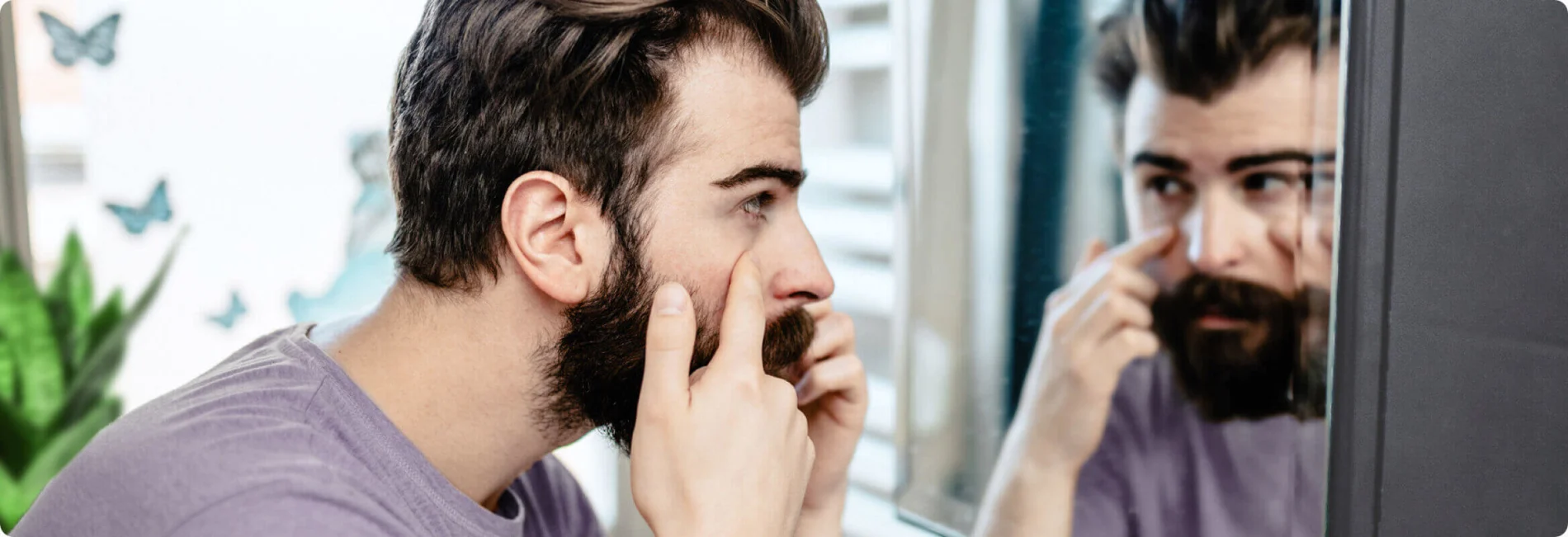Acne Q&A
Physical Health · Sep 15, 2021
Are you struggling with pimples? Whether you’re a teenager or adult, acne can be a bother. We answer some of your questions to help you get a clearer complexion.
Q1: What is acne?
Acne is a common condition, which occurs when pores become clogged with dead skin cells, resulting in the accumulation of sebum (an oily substance produced by oil glands).
Bacteria within pores can contribute to blockage and inflammation – leading to blackheads, whiteheads, pimples and cysts, and sometimes redness, swelling and pus.
Acne is most common among teenagers, though it can affect people of all ages. It usually appears on the face and neck, but can also show up on shoulders, back and upper arms.
Q2: Does my diet impact my acne?
While many believe junk food and chocolate cause acne or make it worse, there is little conclusive evidence that diet plays a significant role. Some studies indicate that eating dairy products, high fat and sugary foods may be a risk factor for acne, but the effect is probably modest and avoiding these foods doesn’t guarantee clear skin.
Q3: Is the sun good for acne and acne scars?
Sun exposure and tanning will not help acne in the long run. Being in the sun can help initially by drying up skin lesions and surface oils, but the effect is temporary. More often, people will experience an acne flare-up after UV exposure. Prolonged sun exposure also raises the risk of skin cancer.
Q4: Is acne caused by bad hygiene?
Acne is not due to dirty skin, and doesn’t reflect personal hygiene habits. The blackheads some people have aren’t dirt-filled pores. They’re black because the oil (keratin) oxidizes when it comes into contact with air. In fact, washing vigorously and too often can irritate your skin and make acne worse.
Q5: What is the best acne treatment?
The best treatment depends on your type of acne.
For milder cases, try over-the-counter products with salicylic acid and benzoyl peroxide. These should be applied to the whole face and not just to the areas with acne. Keep in mind these products can dry your skin.
Please consult a doctor if over-the-counter treatments alone are not effective or if you have more severe acne (with inflamed cysts and scarring). There are a number of prescription treatment options that may be available to you.
If you don’t have a family doctor, or can’t access one, consider seeing a TELUS Health MyCare™ doctor.
One more way to keep zits at bay
Our final tip: avoid touching your face with your fingers or leaning your face on objects that collect sebum and skin residue, such as your phone. Touching your face can spread the bacteria that cause pores to become inflamed and irritated. To keep bacteria at bay, wash your hands before applying anything to your face, including treatment creams or makeup.
While there is no simple cure for acne, following our guidance, and if needed, consulting with a physician can help manage this common skin condition.
Get started with TELUS Health MyCare today
Get started with TELUS Health MyCare today



